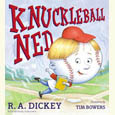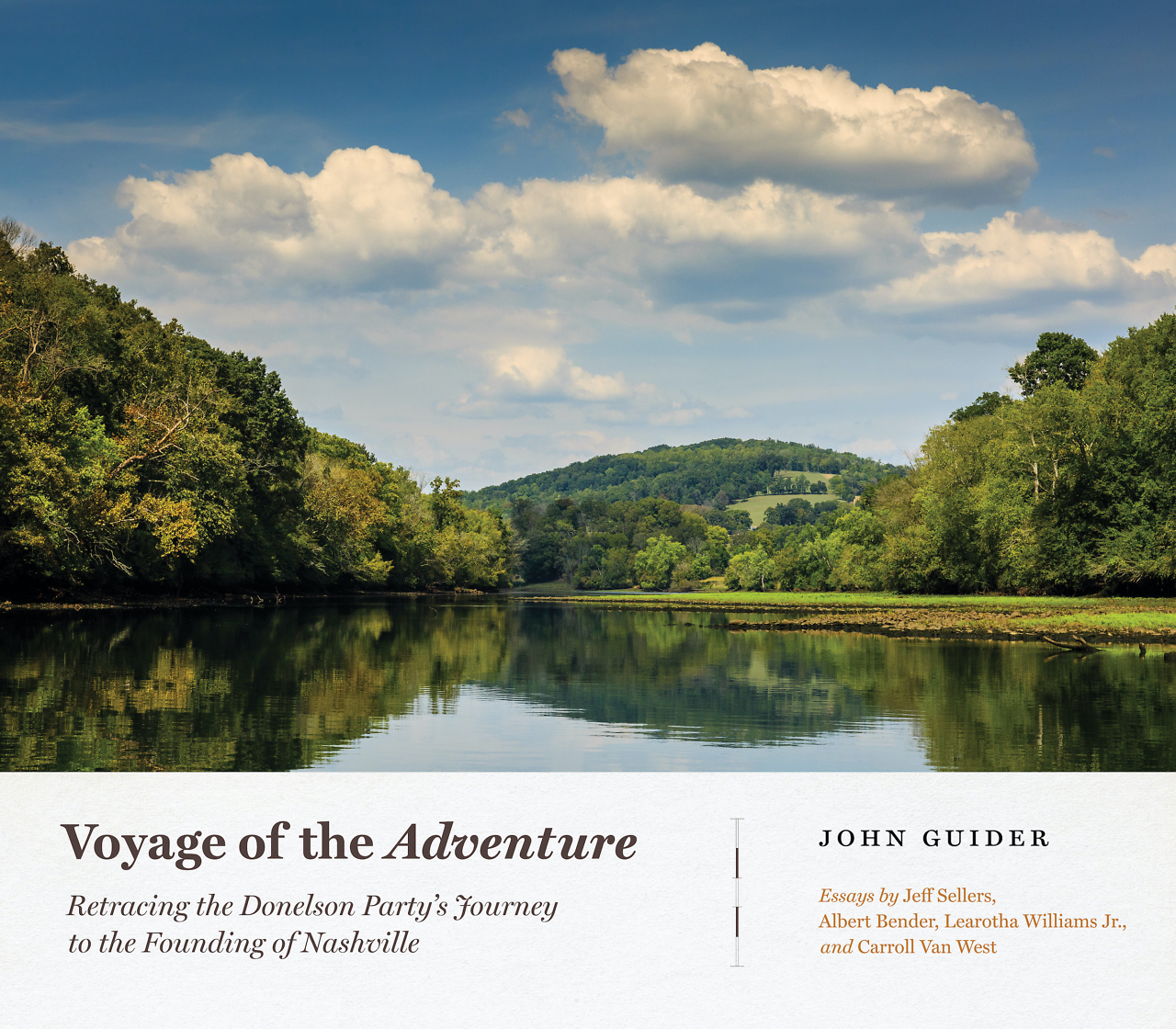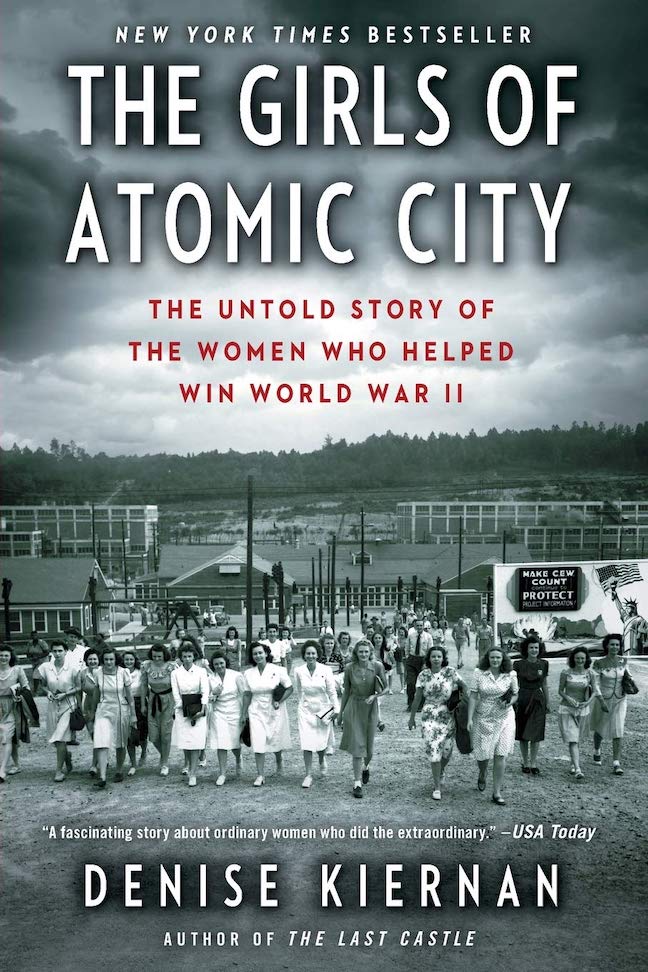Fierce and Unapologetic
The Clarksville Writers’ Conference attracts faculty and students who are passionate about the written word
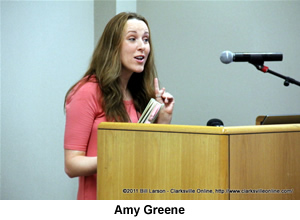 After kicking off the Seventh Annual Clarksville Writers’ Conference on July 14 with a reading from Bloodroot, Amy Greene—a novelist from Morristown and the 2010 Tennessee Writer of the Year—discussed her most important literary influences, and the list included Hohenwald novelist William Gay. So it was no surprise to see Greene walk to the front of the same room later that afternoon, approach Gay (who had just finished reading to the crowd from his novel, The Long Home), and eagerly ask if she could shake his hand. Such was the tone of the two-day event: everyone there, from the attendees to the speakers, radiated a passion for the written word. For Christopher Burawa, chairman of the conference and director of Austin Peay State University’s Center of Excellence for the Creative Arts, this attitude is the main reason for the growing success of the conference: “We have seen some growth in our attendance over the past two years, and I believe it’s because we have been reaching out to those people who have jobs and busy lives but who are compelled to write.”
After kicking off the Seventh Annual Clarksville Writers’ Conference on July 14 with a reading from Bloodroot, Amy Greene—a novelist from Morristown and the 2010 Tennessee Writer of the Year—discussed her most important literary influences, and the list included Hohenwald novelist William Gay. So it was no surprise to see Greene walk to the front of the same room later that afternoon, approach Gay (who had just finished reading to the crowd from his novel, The Long Home), and eagerly ask if she could shake his hand. Such was the tone of the two-day event: everyone there, from the attendees to the speakers, radiated a passion for the written word. For Christopher Burawa, chairman of the conference and director of Austin Peay State University’s Center of Excellence for the Creative Arts, this attitude is the main reason for the growing success of the conference: “We have seen some growth in our attendance over the past two years, and I believe it’s because we have been reaching out to those people who have jobs and busy lives but who are compelled to write.”
This year’s conference attracted writers from as far away as Little Rock and included every age group: retirees, college grads, and students in Austin Peay’s own creative-writing program joined workshops and readings with William Gay, Tom Franklin, Beth Ann Fennelly, Darnell Arnoult, Rheta Grimsley Johnson, Blas Falconer, and Amy Wright, among others. Many of these writers were making return appearances: “I have taught at the conference several times,” said Falconer, a Nashville poet and professor at APSU. “I like getting to know the attendees, who always seem eager and open to the experience.” This eagerness served everyone well, as the conference unfolded at ninety miles an hour from the word “welcome.”
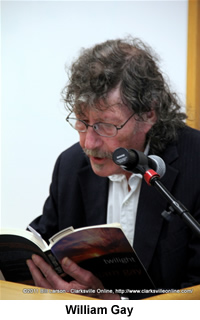 Thursday was the first time I had ever seen William Gay in a live appearance. He stepped to the microphone and read from The Long Home with his spellbinding drawl, alternately amusing and surprising the audience with his dry wit and intensely poetic style. In the Q&A following his reading, Gay spoke of how hard-earned his literary style turned out to be: in the beginning he suffered the rejection of many editors who wanted him to tone down the language of his prose and focus on simple storytelling. He eventually won this stylistic battle by falling back on the writer’s most vital and underestimated quality: stubbornness: “I persisted, and finally they came around to my way of thinking,” he said. “I wanted to be a writer more than I wanted anything else,” he told an audience full of the selfsame ambition, and his success served as the take-home message of the conference: to be a real writer, you have to want it badly enough, and you can’t give up.
Thursday was the first time I had ever seen William Gay in a live appearance. He stepped to the microphone and read from The Long Home with his spellbinding drawl, alternately amusing and surprising the audience with his dry wit and intensely poetic style. In the Q&A following his reading, Gay spoke of how hard-earned his literary style turned out to be: in the beginning he suffered the rejection of many editors who wanted him to tone down the language of his prose and focus on simple storytelling. He eventually won this stylistic battle by falling back on the writer’s most vital and underestimated quality: stubbornness: “I persisted, and finally they came around to my way of thinking,” he said. “I wanted to be a writer more than I wanted anything else,” he told an audience full of the selfsame ambition, and his success served as the take-home message of the conference: to be a real writer, you have to want it badly enough, and you can’t give up.
Naturally, everyone who comes to a writers’ conference has an opinion about what makes great writing, and great Southern writing in particular. In a Thursday afternoon reading, Tom Franklin offered his take on the question: “You have to have been arrested at least once to be considered a proper Southern writer.” Someone in the audience immediately asked him if he had ever been arrested. “I have,” he said but declined to elaborate: “That’s another story.” Everyone laughed, and the questioner dropped the topic.
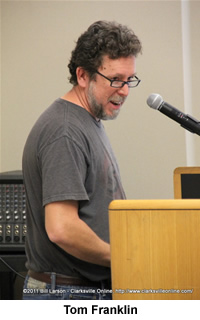 Franklin also stressed how hard writing can be: “Other than being a parent, writing a novel is the hardest thing that I’ve done,” he said, comparing the art to making a crop circle with “a pair of rusty scissors.” Franklin is still a model of how the difficulty still pays off: his latest novel, Crooked Letter, Crooked Letter, is an incredible achievement, subscribing to the mantra of the late Barry Hannah, which Franklin shared with his audience: “Thrill us.”
Franklin also stressed how hard writing can be: “Other than being a parent, writing a novel is the hardest thing that I’ve done,” he said, comparing the art to making a crop circle with “a pair of rusty scissors.” Franklin is still a model of how the difficulty still pays off: his latest novel, Crooked Letter, Crooked Letter, is an incredible achievement, subscribing to the mantra of the late Barry Hannah, which Franklin shared with his audience: “Thrill us.”
Thursday night’s banquet was nothing short of spectacular: after cocktails and dinner, keynote speaker Bill Ferris took to the podium. A former chairman of the National Endowment for the Humanities and co-editor of the massive and Pulitzer-nominated Encyclopedia of Southern Culture, Ferris argued fiercely and at length for the influence of Southern culture: “This is the taproot of American culture.” He then offered a fascinating presentation of recordings and pictures of blues and gospel singers. From his own earliest influences to B.B. King himself, Ferris showcased a deep interest in and respect for those whose stories he recorded: “I tell my students an African proverb: when an old man or woman dies, a library burns to the ground. And these [people] were my first libraries.”
Speaking within the context of the conference, Ferris moved on to discuss the importance of the South’s literary talent: “Southern writers…are the epicenter of the American narrative voice.” He then recognized several of the authors in the room and spoke of his late friend Robert Penn Warren: for fans of Warren, Ferris said, Clarksville “is sacred ground—sort of like Faulkner lovers who come to Oxford.”
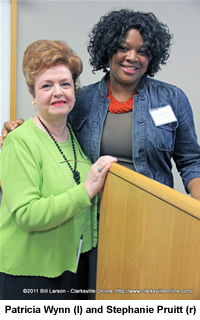 Friday began with much coffee and a reading by Nashville poet Stephanie Pruitt, who immediately tasked the audience with a free-writing exercise. We were to start with the word “rock” and simply write whatever word came next for about two minutes. My list ended with “showerhead,” Pruitt’s with “carpet.” It’s an exercise Pruitt has devised to thwart writer’s block, a concept she doesn’t entirely believe in: “If my hands are working, if I have paper or the computer, I can write something. Even if I’m writing about not writing, that’s writing.” This brilliant, no-compromise advice echoed Gay’s emphasis on persistence and became the theme of Friday’s workshops.
Friday began with much coffee and a reading by Nashville poet Stephanie Pruitt, who immediately tasked the audience with a free-writing exercise. We were to start with the word “rock” and simply write whatever word came next for about two minutes. My list ended with “showerhead,” Pruitt’s with “carpet.” It’s an exercise Pruitt has devised to thwart writer’s block, a concept she doesn’t entirely believe in: “If my hands are working, if I have paper or the computer, I can write something. Even if I’m writing about not writing, that’s writing.” This brilliant, no-compromise advice echoed Gay’s emphasis on persistence and became the theme of Friday’s workshops.
After Pruitt’s plenary speech, the audience divided, with some attendees heading to workshops and others to readings. In her session, Beth Ann Fennelly read poems concerning kudzu, hilarious parental patronization, and being at home in the South. Her advice to aspiring writers? Cultivate a spirit of independence. “One of the things I’ve gotten more confident about as a writer is not worrying about whether something will be interesting to someone else.” This accountable-to-none approach is especially true for poetry, she explained: “If you want to be a poet, you have to just love it more than anything and defend it because the world’s not going to defend it for you.”
In fact, this statement very much applies to any kind of writing, and it was certainly the case in Clarksville: all those writers, both lecturing and learning, united for two days because of a love for the art so fierce, so essential to their lives that it could indeed face the world on its own.
